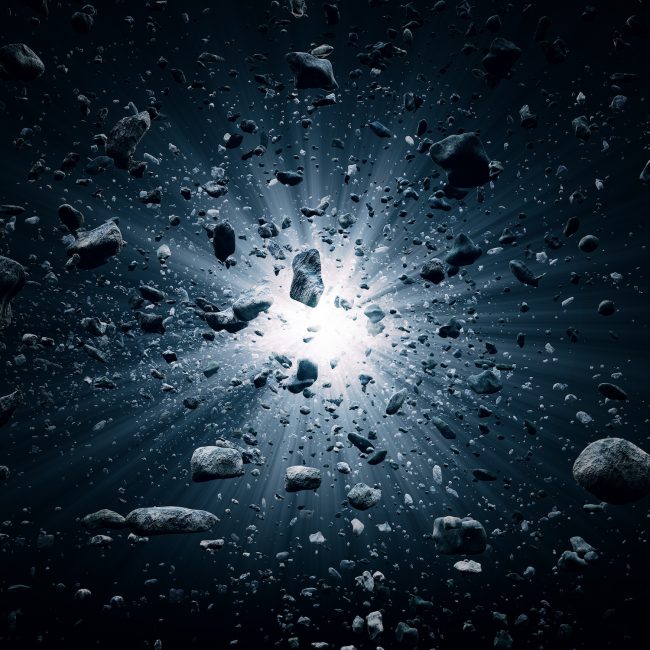How will the universe end? Possible Theories Explained
We know that all matter, time and space were in a kind of tiny, compact state about 14 billion years ago, before the Big Bang. We also know that our universe is currently expanding at a very accelerated rate. Still, do we know for sure how our universe is going to end? Well, let’s start with the two main forces in our universe: the gravitational force and the other repulsive force that is actually responsible for the expansion of our universe. These forces are pulling in opposite directions and one of them will win at one point, but which one?

How will the universe end?
The universe will end either by a big freeze, a big rip or a big crunch. Depending on the winner of the battle between the two main opposing forces of the universe, our universe will end in one of these three ways. Let me explain this better. Imagine there are two balls linked together by an elastic band that keeps them together. Then each ball is also linked to a different cord that pulls them in different directions. The elastic band holding the balls together is the force of gravity and the cord that is pulling them apart is the force responsible for the expanding of the universe. Now, multiply these 2 balls by a thousand – billion times and you’ve got a universe.
1. The Big Freeze Theory
Our universe will end in a Big Freeze if the force pulling the objects apart is stronger than the force of gravity. So, if the cords pulling the balls in opposites directions is stronger than the elastic band holding them together, then this band would lose its elasticity and eventually it would let the balls slip out. As a result, the expansion wouldn’t be able to accelerate anymore, but the universe will keep getting bigger. What happens is galaxies will separate, suns, planets, and moons will move away from each other and the universe will only be a vast space of lonely objects floating separately.
2. The Big Rip Theory
Our universe will end in a Big Rip if the expansion force stretches the elastic band past its elastic limit and tears it apart. This will result in the universe continuing to expand at such a rapid state that it will eventually overcome the gravitational force, the electromagnetic and strong nuclear forces which hold atoms and nuclei together. The result of all this is kinda’ predictable from here on, right? Our big universe will basically be broken into tiny bits of matter.
3. The Big Crunch Theory
In this scenario, the elastic band holding the two balls together wins and the universe’s expansion is brought to a halt. Nevertheless, the process would quickly get reversed and galaxies would start rushing towards each other and their gravitational poles will get stronger and stronger as they would near each other. Stars would also hurdle together and collide and temperatures would rise up. Basically, space will get tighter and tighter until even atoms and subatomic particles would have to get closer and closer to each other. Thus we would have an incredibly dense, hot and compact universe, something like at the beginning, before the Big Bang.
What about the Big Bounce Theory?
So, if the universe ends in The Big Crunch, then this really dense, compact matter could explode in another Big Bang, creating another universe, right? Is this what had happened before the Big Bang? Is our universe just perpetually expanding and contracting over and over again, from one universe to another? There is such a theory and it’s called The Big Bounce. Yes, your mind might be running now: how many bounces could’ve happened? How many universes could have been born and died this way, the matter reorganizing itself to bounce again in another Big Bang and another and another? How many might happen in the future?
Sadly, each bounce would wipe away any record of the universe’s previous history so we can’t possibly know. Still, there is a possibility here. Just imagine! Maybe another being, from another past universe was sitting and thinking just that before his universe ended.
Anyways, how do you think the universe will end? Will it die out in a Big Freeze, disappear in a Big Rip or be cramped in a Big Crunch only to bounce out again and again and again?
